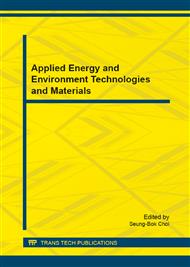p.715
p.719
p.723
p.728
p.732
p.737
p.743
p.749
p.754
Water Resources Compensation Policy and Application on Differential Empowerment System
Abstract:
Through the water compensation models, the article studies the effect of water resources compensation policy on the upstream and downstream areas under differential empowerment systems. Study finds that difference in water resources utilization efficiency is the precondition of water resources compensation policy implementation. With changes of water resources utilization efficiency, the compensation price changes in the same direction and the compensation amount changes in the opposite direction. Finally, water resources compensation policy will improve the welfare of both areas, which is highly consistent with Coase theorem.
Info:
Periodical:
Pages:
732-736
DOI:
Citation:
Online since:
March 2015
Authors:
Price:
Сopyright:
© 2015 Trans Tech Publications Ltd. All Rights Reserved
Share:
Citation:


